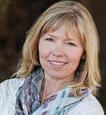Let’s face it - money is an emotional topic. We like to think that money is a logical, left-brain process. But in truth it isn't. Money issues almost always stem from fear and our desire to be in control. Where do these beliefs come from? In her book, "For Richer, not Poorer," Ruth Hayden discusses how our upbringing affects our money beliefs.
We are affected by how our mother and father (or whoever raised us) handled money as individuals and how they interacted with money as a couple - in other words, their money dynamics. How did they make decisions? We do what we see our parents do or we rebel and do the exact opposite.
We have an experience that affects us emotionally growing up. We have an emotional experience around money, and we form a conclusion, or belief based on that experience. We form a beliefs based on past experiences.
Without increasing our awareness or taking the time to understand where it came from. We think of this belief as reality.
If you are wondering why you approach money in a certain way, you might find some clues in looking answering the following questions and exploring how your parents interacted and handled money when you were growing up.
Once you understand where your beliefs stem from you can choose keep the ones that serve you and let the others go. Choose new, reinforcing beliefs to replace the negative ones. I highly recommend sharing your beliefs with your partner or a close, supportive friend.
Using Your Financial Past to Build a Successful Future
Many of us are unaware of our underlying beliefs and feelings about money. They stay with us like mud on our boots from a walk in the rain. Eventually, the mud on your boots thickens, making it very difficult to walk. These hidden beliefs affect the way you handle and attract money and how you interact with your partner around financial issues.
Give yourself some time to reflect on the following questions. Answer with the first thoughts that come to your mind.
- What memories come to mind when you recall your mother’s behavior, spending/earning habits and attitudes with money?
- What memories come to mind when you recall your father’s behavior, spending/earning habits and attitudes with money?
- What were the dynamics between your mother and father regarding money? How did they discuss money issues with each other? Did they talk to you about money?
- How did your parents respond when you wanted to buy something or needed something? How did you get the things you wanted and needed?
- How would you describe your family’s financial situation when you were growing up?
- Describe a few childhood memories that you have around money (that bring up a strong emotional response – positive, or negative, in you). Describe the experience and how you felt.
- Identify the messages or beliefs that you developed around money. “These are the messages I received from my family about money:”
- I reacted to my family’s money messages by: (deciding to be just like them or to never be like them).
- Describe your behavior now with earning and spending money:
- What are the connections between your parent’s behaviors and your current behavior with money? Specifically, What are the connections between how your parent’s behaved with each other around money and how you now behave with your partner (and/or friends) around money?
- I would like to change the following things about my money behaviors and beliefs:
- I would like to handle money more this way:
- Three things that I do well with money:
After you’ve reflected on these questions share your responses with your partner or a close friend. Think of this exercise as a good financial housekeeping. Once you understand the money beliefs that weigh you down, you can make a conscious decision to change them.
Leslie Cunningham specializes in working with women entrepreneurs who experience fear and self-doubt in their ability to consistently make more money in their business. The end result that women achieve through following Leslie's advice and expertise is that they are able to permanently get off the emotional financial roller coaster ride and break into six-figures and beyond. http://impactandprofits.com/

Post new comment
Please Register or Login to post new comment.